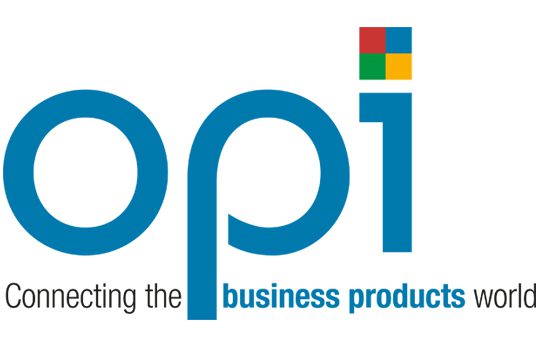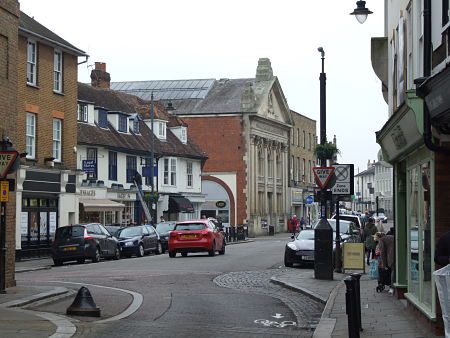Interview with Elliot Jacobs – Flying the Retail Flag
8 Nov 2019

By Andy Braithwaite, OPI Magazine
24th October 2019
On 1 October, UK dealer UOE raised a few eyebrows when it announced it had sold its B2B Operations to the Quills Group in order to focus exclusively on its retail business.
Retail?
In the UK high street?
Really?
For UOE Managing Director Elliot Jacobs, it was not a decision that was taken lightly, but one that made sense in terms of how his business has evolved over the past few years.
“Five years ago, we had a small retail presence with one store that was not really making any money, and 90% of business was in the B2B office products channel”, he explained in a telephone interview with OPI.
“We then got an opportunity to bid for a franchise on a Post Office, which we won. We opened our first Post Office in East Finchley (North London) five years ago, and almost overnight it transformed into a fantastically busy and profitable store. I realised that, for us, this was the missing bit in retail – creating the footfall that everyone seems to struggle with.”
As UOE opened more Post Office locations, it got to the stage where retail and B2B each represented about 50% of the company’s revenue. “We basically had two businesses that were very different in terms of their demographics, customers, markets and products.” said Jacobs.
He continued: “Both B2B and retail are demanding and you have to be at the top of your game. We therefore asked ourselves if we could be equally successful at both if we wanted to take them forward. We don’t have infinite resources and being a jack-of-all trades was not an option, so we decided to opt for the one that we thought had the ‘biggest bang’.”
He put the B2B side on the market and received a number of offers. He went with Quills because among other things, it guaranteed the future of the UOE B2B team. “The Quills offer was the one I felt best protected those jobs and our staff were excited about the new opportunities and extra resources they would be given.” he noted.
Jacobs admitted that he has always been someone looking to buck trend, but he also saw an opportunity in retail while others were getting out.
“Retail is tough, but we have tremendous footfall with the Post Office and shown we can grow that. we are about to open our eighth branch next year and we serve 1.5 million customers. With our plans to have 12-15 stores within the next five years, we hope to grow to 3-4 million customers.”
It’s a concept that has been validated by leading UK high street operator WH Smith. It now has more than 200 Post Offices in its stores and recently signed an agreement to add 40 more. Ryman has also been adding Post Offices into its retail network.
At UOE, instead of backwards engineering existing stores to incorporate a Post Office, it has chosen locations first – in busy, high foot-traffic areas – and then built the store from the ground up. This has meant it has been able to create a substantial Post Office service with multiple counters in each store; it’s much more than just a single counter stuck at the back.
The stories are grouped in clusters – which Jacobs says is easier to manage and staff – and this model will be kept as the network expands.
The Post Office itself has had to rethink its strategies as fewer letters are sent and more services are digitised. One boom has been e-commerce with its parcel collections and returns, and this is a growing side of the business. A recent agreement to extend banking services at post office locations will also help as the major banks continue to close local branches. Passport photo printing is also another service which Jacobs says attracts thousands of people a month.
On the stationery side, UOE offers what Jacobs calls ‘mid-market’ brands such as Moleskine, gifts up to a value of around £15 ($17), office supplies essentials, packaging products and greeting cards. There are also copy, print and laminating facilities and an internet cafe service.
“Stationery alone may be a struggling category, but we have a very symbiotic relationship between all the products and services we offer.” said Jacobs. He revealed that about one in five customers who come into stores to use the Post Office purchase something else, and the goal is to get this number up to one in four.
UOE has also developed a ‘hub’ concept, which includes co-working spaces above some of the existing stores. This not only strengthens ties with local businesses, it also essentially covers the cost of a store’s rent, with the subscription revenue helping with financial planning and cash flow. On the flipside, Jacobs pointed to the high fit-out costs involved when creating a co-working service.
With the well-documented ‘carnage’ in the UK high street, one might assume that UOE would be able to negotiate highly favourable lease terms. However, Jacobs said that landlords were certainly not caving in and, in some cases, preferred to leave properties empty rather than slash prices.
“I would say our rent is ‘fair’, but we are not paying bargain rates.” he stated. “However, we do represent a pretty safe bet for landlords – Post Office will still be here in ten years’ time. That’s why we are taking out 12-15-year leases: we have spent a lot of money building these stores, and we’re not going anywhere!”






